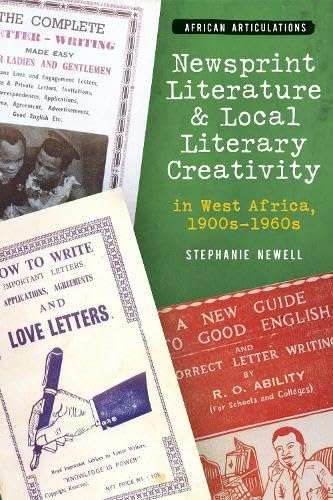

Most ebook files are in PDF format, so you can easily read them using various software such as Foxit Reader or directly on the Google Chrome browser.
Some ebook files are released by publishers in other formats such as .awz, .mobi, .epub, .fb2, etc. You may need to install specific software to read these formats on mobile/PC, such as Calibre.
Please read the tutorial at this link: https://ebookbell.com/faq
We offer FREE conversion to the popular formats you request; however, this may take some time. Therefore, right after payment, please email us, and we will try to provide the service as quickly as possible.
For some exceptional file formats or broken links (if any), please refrain from opening any disputes. Instead, email us first, and we will try to assist within a maximum of 6 hours.
EbookBell Team

4.0
86 reviewsFrom their inception in the 1880s, African-owned newspapers in 'British West Africa' carried an abundance of creative writing by local authors, largely in English. Yet to date this rich and vast array of work has largely been ignored in critical discussion of African literature and cultural history. This book, for the first time, explores this under-studied archive of ephemeral writing - from serialised fiction to poetry and short stories, philosophical essays, articles on local history, travelogues and reviews, and letters - and argues for its inclusion in literary genres and anglophone world literatures. Combining in-depth case studies of creative writing in the Ghana and Nigeria press with a major reappraisal of the Nigerian pamphlets known as 'Onitsha market literature', and focusing on non-elite authors, the author examines hitherto neglected genres, styles, languages, and, crucially, readerships. She shows how local print cultures permeated African literary production, charting changes in literary tastes and transformations to genres and styles, as they absorbed elements of globally circulating English texts into formats for local consumption. Offering fresh trajectories for thinking about local and transnational African literary networks while remaining attuned to local textual cultures in contexts of colonial power relations, anticolonial nationalism, the Cold War and global circuits of cultural exchange, this important book reveals new insights into ephemeral literature as significant sites of literary production, and contributes to filling a gap in scholarship on colonial West Africa.